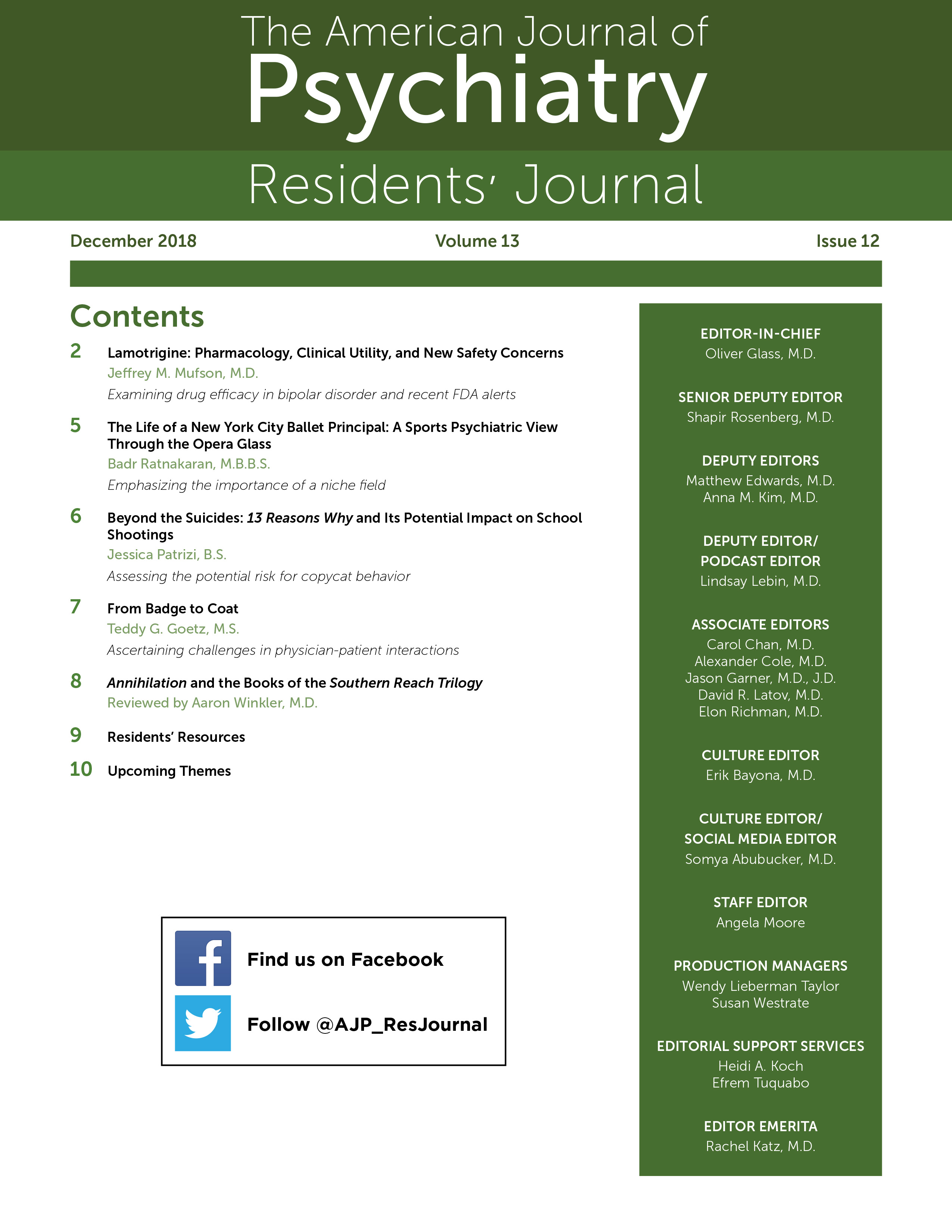I wore a visitor's badge the first time that I set foot in an inpatient psychiatric unit. It was the first week of my senior year of college. Instead of worrying about how to balance medical school interviews while writing two theses, I was consumed by the fragility of "skin and life," by what could have happened if I had come home just an hour later. Sitting in that plastic visitor's chair, for the first time in 2 months I did not feel responsible for keeping her alive, but a whole new panic had set in. The wails and threats pinballing down bare corridors shrouded her hushed pleas that she felt physically unsafe there, amplifying my already crushing sense of helplessness.
As a medical student, a year and a half later, I had no idea how to reenter such space as a member of a care team. I did not know if the armor of a white coat could hide a year of desperately supporting someone I loved who was fighting depression and had suicidal ideation. I feared that painful praxis would hinder me from becoming a functional doctor, let alone the capable, empathetic, and resilient physician that I aspired to become. How could I help patients if I could not even handle my own emotions?
Starting my preclinical psychiatric medicine class seemed to confirm those fears. I cried in lectures and small groups and was out of commission for hours afterward. I struggled with the phrasing of course material, which often set up an "us versus them" position, with the "us" being a comfortably distanced perspective that did not accommodate more intimate understandings of illness. Unable to identify with a purely clinical mindset, I felt isolated by private dissonance until I began opening conversations with classmates and professors about my discomfort and growing pains while attempting to fill this new role. With that transparency, I found others grappling internally with similar questions, and together we brainstormed strategies for focusing in difficult moments on the role that we fill and how we can best serve our patients. That guidance and support helped me to carry personal experiences of the psychiatric establishment into my new role, without being consumed by memory.
While still reconciling my burgeoning medical professionalism with acute empathy for those with the fear and vulnerability of a nonmedical perspective, this journey appears less daunting to me now. I trust that I can listen to patients attentively, with empathy, and contribute to their care. I anticipate difficult moments but remain confident that I will make peace with that struggle and be kinder to myself. In my interactions with patients, I bring with me the feelings associated with wearing a visitor's badge, and rather than being a hindrance, I hope that this will make me a more conscientious interviewer, compassionate clinician, and resilient person. I eagerly await the chance to try.
